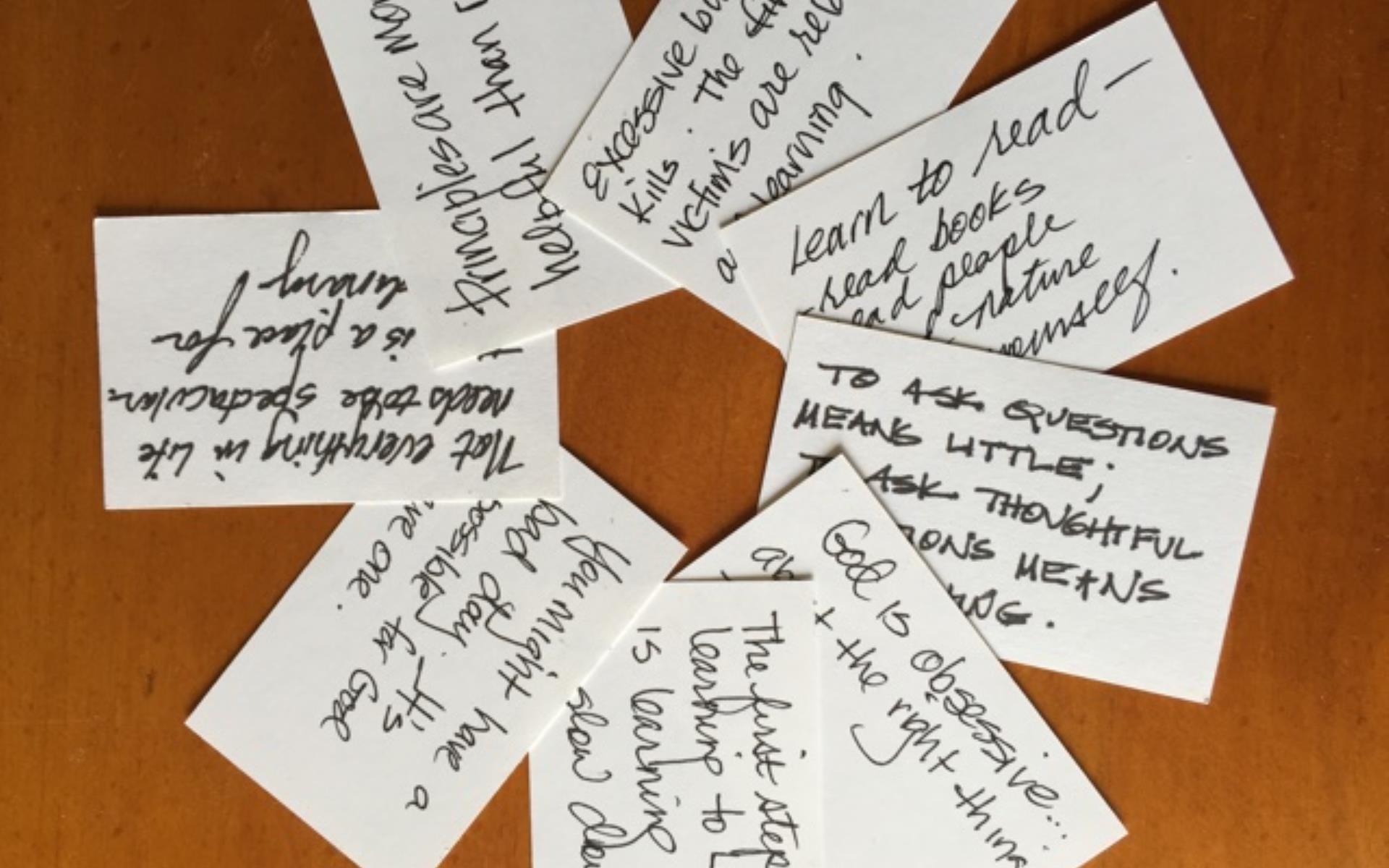
Aging is often associated with what we lose, but why not associate it with what we gain?
The Bible associates wisdom with aging. Job asked the question, “Is not wisdom found among the aged? Does not long life bring understanding?” (Job 12:12, NIV). But is that wisdom automatic or is there something more we must do? If this verse were a promise, we would naturally become wiser with each birthday. Unfortunately, that is not the case. We must choose it.
One of God’s favorite tools for teaching wisdom is daily life. Each day is filled with ups and downs, joys, and uncertainties. The events of the day are both our lessons and our classrooms . . . if we stop long enough to let God speak to us. The classroom of life is authentic and personal so it can change us more than lectures and books. Life we remember, books, and lectures we forget. Joan Erikson sees wisdom through the image of food. She asks, “What is real wisdom, it comes from life experience, well digested” (as cited in “Wisdom: From Philosophy to Neuroscience” by Stephen S. Hall).
Recently I reflected on my own life and realized that even though I had been exposed to great teachers and leaders, I had been seeking knowledge more than wisdom.
God promises us this: “If any of you lacks wisdom, you should ask God, who gives generously to all without finding fault, and it will be given to you” (James 1:5, NIV). What a promise—wisdom is free, I can have as much of it as I want, and he can hardly wait to give it to me. My knowledge apart from God’s wisdom can tilt me toward pride and arrogance. Was I passing on wisdom or just knowledge? I decided to talk to a friend to see what we could learn about wisdom together. We meet for Bible Study and always ask each other how the Bible is influencing our life experiences.
At our last study we barely got started when I had to ask David, “If you could pass on five things God has taught you about wisdom, what would they be?” We stopped talking and started thinking. This was not an easy question to answer. As we considered what God has taught us through our life experiences, we each wrote down five wisdom principles on some cards and went over each one. When we finished our time together, David asked if we could continue this process of making what he called “Wisdom Cards.” Thinking of the future, he added, “I want to eventually pass on this kind of wisdom to my two-year-old grandson.”
So what did we write on our Wisdom Cards? Here’s a sampling of our observations:
Is wisdom found among the aged? Well, I don’t know about others, but I can say that I am learning about it in a new way. What wisdom have you gained over the years? What would you put down on a Wisdom Card to pass along to someone else?